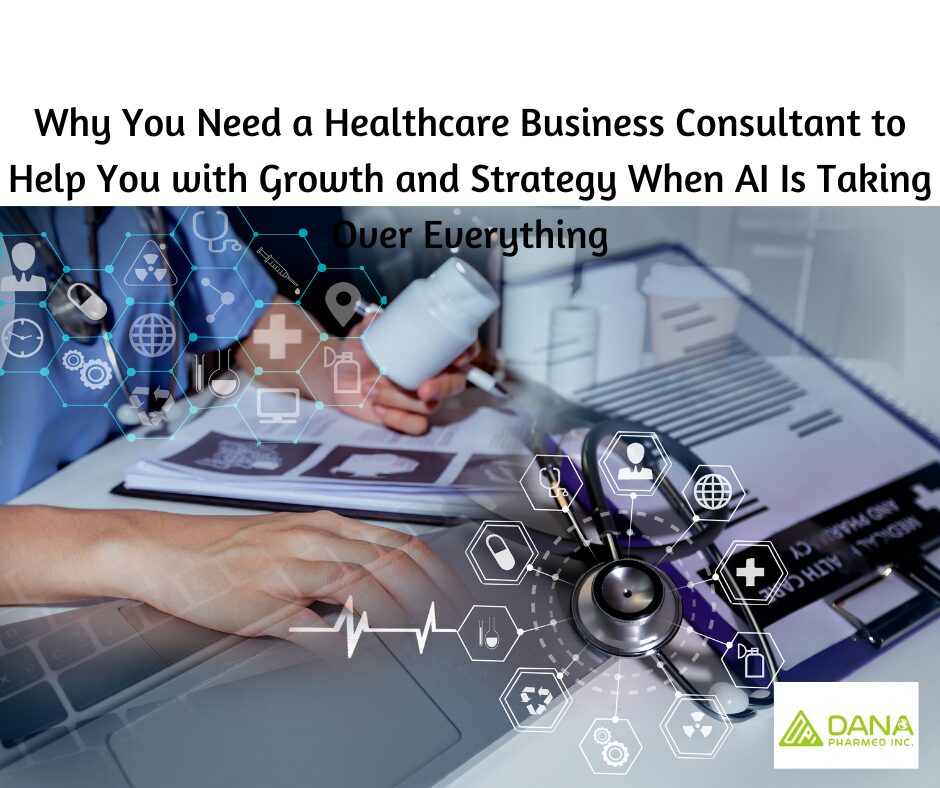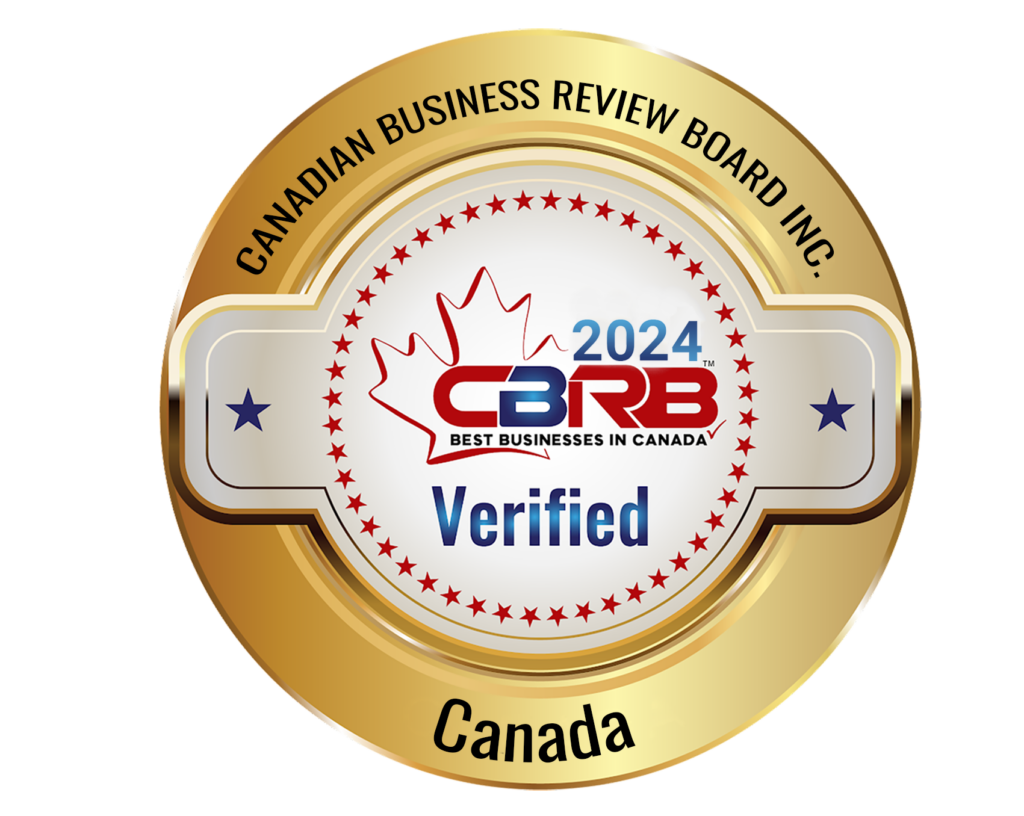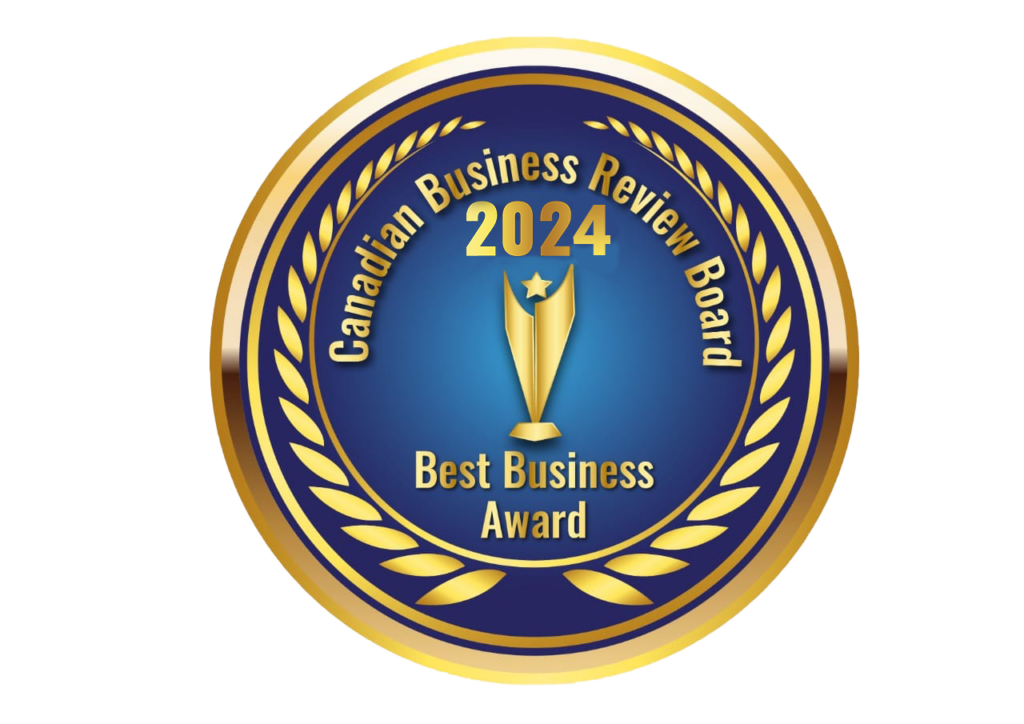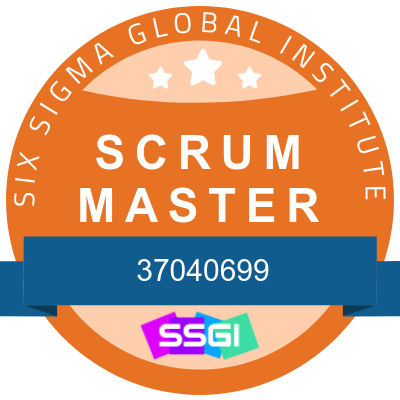Artificial intelligence (AI) is driving a seismic transformation in the healthcare and medical industries. As AI advances, healthcare businesses must adapt and use this technology to remain competitive. A healthcare business consultant can help navigate these changes, providing valuable insights and strategies for growth and innovation. With their expertise, businesses can harness the power of AI to streamline processes, improve patient care, and drive overall success in a rapidly evolving landscape.
From predictive diagnostics to robotic surgery, AI offers tools to revolutionize operations, enhance patient care, and optimize efficiency. For example, a hospital could use AI-powered predictive analytics to identify patients at risk of developing complications, allowing for early intervention and improved outcomes. Additionally, robotic surgery systems can assist surgeons in performing complex procedures with precision, reducing the risk of human error and shortening recovery times for patients. Yet, as powerful as AI is, it is not a panacea. It lacks the human touch, nuanced decision-making, and strategic vision required to truly thrive in a complex industry.
- Predictive Analytics for Patient Care: AI-powered tools like IBM Watson Health analyze vast amounts of patient data to predict potential health risks. For instance, they can identify early signs of sepsis or heart failure, enabling doctors to intervene before conditions worsen.
- Streamlined Diagnostics: AI platforms like PathAI assist pathologists by analyzing medical images with remarkable accuracy, speeding up cancer diagnosis and reducing human error. This allows for quicker treatment initiation, improving patient outcomes.
- Automated Administrative Tasks: AI systems like Chronometriq optimize appointment scheduling by automatically filling cancellations with waitlisted patients, ensuring clinics operate at full capacity. This reduces wait times and increases patient satisfaction.
- Personalized Treatment Plans: AI algorithms used in precision medicine analyze genetic data to recommend tailored treatment plans for conditions like cancer or rare diseases. For example, Deep Genomics uses AI to predict how genetic mutations impact health and identify the most effective interventions.
- Virtual Health Assistants: Platforms like Babylon Health use AI chatbots to guide patients through symptoms, offering preliminary advice and directing them to the appropriate care level. This not only enhances accessibility but also reduces the burden on emergency departments.
By showcasing these abilities, readers can better grasp how AI is changing healthcare, making the advantages more tangible and memorable. These examples highlight the synergy between advanced technology and human expertise, demonstrating the potential to revolutionize patient care and operational efficiency.
It is crucial for healthcare professionals to remember that AI is a tool to assist in decision-making, not a replacement for human expertise and judgment. While AI can analyze vast amounts of data and provide valuable insights, it is essential for healthcare providers to interpret and apply this information in a thoughtful and ethical manner. Additionally, there are concerns about privacy and security when it comes to using AI in healthcare, as patient data must be protected against potential breaches and misuse. Therefore, it is important for healthcare organizations to implement robust safeguards and protocols to ensure the responsible and ethical use of AI technologies in the medical field.
This is where the expertise of a healthcare business consultant, like those at Dana PharMed, becomes indispensable.
What AI Can’t Do in Healthcare and Medical
AI is undeniably a marvel of modern technology, revolutionizing industries with its ability to process vast amounts of data, predict outcomes, and streamline operations. However, its capabilities are not without limitations, particularly in the nuanced and deeply human field of healthcare. While AI can analyze medical images with remarkable precision, assist in diagnosing diseases, and even suggest treatment plans, it lacks the empathy, intuition, and ethical judgment that are critical in patient care.
The human element remains irreplaceable when it comes to understanding the complexities of individual experiences, building trust, and navigating the emotional dimensions of health and illness. Healthcare is not just about curing ailments; it is about holistic care, personalized approaches, and moral accountability—areas where AI, despite its sophistication, cannot fully substitute the expertise and compassion of trained professionals.
- Emotional Intelligence and Patient Care
AI cannot replace the empathy and trust-building that healthcare providers must establish with their patients. Patients seek care from professionals who understand their unique concerns and offer emotional support, something algorithms simply cannot replicate. Healthcare Business Consultants guide practices in balancing technology with human connection, ensuring patients feel valued and understood. - Interpreting Complex Situations
Healthcare often involves multifaceted cases where a patient’s physical, mental, and social conditions intersect. AI can analyze data, but it cannot interpret the complexities of human behavior or social determinants of health. A consultant brings this contextual understanding to the table, ensuring technology supports, rather than oversimplifies, decision-making. Healthcare Business Consultants also bring a wealth of experience and expertise in navigating the ever-changing regulatory landscape of the healthcare industry. This knowledge is crucial in helping practices remain compliant and avoid costly mistakes. Additionally, consultants can provide valuable insights on industry best practices and trends, helping practices stay ahead of the curve and deliver better care to their patients. Overall, the human touch and personalized guidance that healthcare business consultants provide are indispensable in optimizing healthcare delivery and patient outcomes. - Customizing Strategies for Unique Businesses
AI-driven insights are often generalized. However, each healthcare business has its own challenges, patient demographics, and operational dynamics. Healthcare Business Consultants provide tailored strategies, such as advising a mental health clinic on leveraging AI for remote therapy while maintaining personal connections, or assisting a physiotherapy practice in adopting AI for patient tracking without compromising hands-on care. By considering these specific factors, healthcare business consultants can create solutions that truly benefit each unique business, leading to more successful and sustainable outcomes. This personalized approach allows technology to enhance decision-making processes in a way that aligns with the individual needs and goals of each healthcare organization. For example, a mental health clinic could utilize AI-powered chatbots to provide immediate support and guidance to patients between therapy sessions, while still allowing therapists to maintain a personal connection during scheduled appointments. In the case of a physiotherapy practice, AI could be used to analyze patient data and track progress over time, allowing therapists to make more informed treatment decisions without sacrificing the hands-on care that is crucial to their practice. - Navigating Ethical and Regulatory Challenges
AI tools must adhere to stringent privacy laws and ethical guidelines, such as HIPAA, PHIPA, and PIPEDA. Missteps in compliance can lead to severe penalties and reputational damage. Consultants ensure businesses implement AI responsibly, addressing data security, informed consent, and equitable access. By ensuring that AI tools adhere to these strict regulations, physiotherapy practices can confidently integrate technology into their patient care without fear of legal repercussions. Healthcare Business Consultants play a crucial role in guiding practices through the complex landscape of ethical and regulatory challenges, helping them navigate potential pitfalls and ensure that patient data is protected. With the right support and oversight, AI has the potential to revolutionize the way physiotherapists deliver care, leading to better outcomes for patients and more efficient practice management. - Creative Problem-Solving and Innovation
AI excels at pattern recognition but lacks the creativity required for innovative solutions. For example, devising a marketing campaign to reach underserved communities or designing a new patient experience model requires human ingenuity. Healthcare Business Consultants bring this creative perspective, identifying opportunities that technology alone would overlook. They are able to bridge the gap between innovative ideas and practical implementation in the healthcare industry. By combining the analytical power of AI with the creative problem-solving skills of Healthcare Business Consultants, healthcare organizations can optimize their operations and improve patient care collaboratively. These consultants can bring fresh perspectives and out-of-the-box thinking to the table, leading to breakthrough solutions that benefit both patients and providers. In the rapidly evolving healthcare landscape, this combination of technology and human ingenuity is essential for staying ahead of the curve and driving meaningful change. - Crisis Management and Adaptability
Healthcare is unpredictable. Emergencies like staffing shortages, sudden regulatory changes, or patient surges demand quick thinking and adaptive strategies. AI, which relies on pre-programmed algorithms, cannot adapt in real-time. Healthcare Business Consultants, however, can assess the situation dynamically and recommend actionable solutions. Their ability to think on their feet and pivot quickly in response to unexpected challenges makes them invaluable partners in crisis management. By leveraging their expertise and experience, healthcare organizations can navigate through turbulent times and emerge stronger on the other side. In a constantly changing industry, the adaptability of human consultants is a vital asset for ensuring the delivery of high-quality care amidst uncertainty.
Why Healthcare Business Consultants Are Essential Despite AI Advancements
The rapid integration of artificial intelligence (AI) into healthcare has transformed the industry, streamlining processes, improving diagnostics, and enhancing patient outcomes. From AI-driven chatbots that provide initial medical consultations to algorithms that predict patient deterioration, the potential of AI seems limitless. However, while AI excels in data analysis and operational efficiency, it cannot replace the strategic thinking, personalized guidance, and human insight that healthcare business consultants bring to the table.
Healthcare business consultants play a pivotal role in navigating the complexities of the industry, particularly as AI adoption grows. They provide the strategic foresight necessary to integrate technology into existing workflows while ensuring alignment with business goals. Unlike AI, consultants understand the unique challenges faced by each organization, offering tailored solutions that address operational inefficiencies, compliance with ever-evolving regulations, and market positioning.
AI may suggest a strategy based on data trends, but it lacks the capacity to understand cultural nuances, organizational dynamics, or the human side of change management. Consultants bridge this gap by fostering collaboration among stakeholders, ensuring smooth implementation, and driving staff engagement during transitions. Additionally, they evaluate the cost-benefit analysis of adopting AI solutions, balancing innovation with financial sustainability.
Furthermore, healthcare business consultants excel in areas where AI falls short, such as ethical decision-making, long-term strategic planning, and handling unforeseen challenges. They also provide invaluable support in areas like patient engagement, marketing, and community outreach—tasks that require a deep understanding of human behavior and empathy.
As the healthcare industry evolves, the collaboration between cutting-edge AI technologies and seasoned business consultants is essential. Together, they can harness the power of AI while ensuring that human-centric care, strategic growth, and organizational resilience remain at the heart of healthcare.
- Strategic Integration of AI Tools
Adopting AI without a cohesive strategy often leads to wasted resources and suboptimal results. Consultants evaluate your needs and recommend tools that align with your goals, whether it’s implementing AI-powered EMR systems, predictive analytics for patient trends, or automation for billing processes. They also oversee implementation, ensuring seamless integration with minimal disruption. - Human-Centric Growth Planning
AI can optimize operations but cannot define your vision or goals. Consultants craft growth strategies that consider market trends, patient needs, and operational capacities. For instance, a dental clinic could combine AI for appointment scheduling with a human-driven strategy to improve patient retention through personalized care plans. - Leveraging AI for Enhanced Outcomes
AI can analyze large datasets to identify trends, but a consultant helps translate these insights into actionable steps. For example, predictive analytics might show a rise in mental health issues in a specific demographic. A healthcare business consultant could guide a clinic to introduce AI-supported teletherapy sessions while training staff to address cultural sensitivities. - Building Resilient and Agile Operations
The pace of technological advancement can overwhelm businesses. Healthcare Business Consultants keep your operations agile by regularly reviewing systems, training staff, and suggesting iterative improvements. This ensures your practice stays competitive without becoming over-reliant on any single technology. - Expanding Services and Revenue Streams
AI can spot opportunities, and healthcare business consultants translate them into practical plans. For example, they might help a physiotherapy clinic adopt AI-assisted movement analysis tools while launching a remote patient monitoring service to attract a broader client base. - Ensuring Sustainability and Ethical Growth
AI is a tool, not a strategy. Sustainable growth requires ethical practices, community engagement, and a focus on long-term impacts. Consultants balance technological advancements with these considerations, helping businesses maintain their reputation and commitment to patient care.
The Dana PharMed Difference
At Dana PharMed, we understand the transformative power of AI and the critical role of human expertise in maximizing its potential. With over 25 years of experience in North America, we’ve helped countless healthcare businesses navigate technological advancements while staying true to their mission. Our tailored strategies combine cutting-edge AI tools with proven business methodologies to drive growth, enhance patient care, and future-proof your practice. Our team of experts is dedicated to providing personalized solutions that align with your unique goals and values.
By leveraging the latest AI technologies, we can streamline processes, optimize workflows, and improve overall efficiency within your organization. With Dana PharMed, you can trust that your business will not only stay ahead of the curve but also continue to deliver exceptional care to your patients. Let us partner with you to unlock the full potential of AI and propel your practice to new heights of success.
By choosing Dana PharMed, you gain a partner who understands the intricacies of healthcare, the capabilities of AI, and the importance of a human-centered approach. Together, we can turn technology into a powerful ally for your success.









